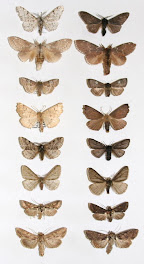Supporters of the change (introduced by the Kansas Board of Education - afarensis) say it promotes “academic freedom.” Opponents, that it unconstitutionally will introduce religion into a public school framework.
Further, the standards would rewrite the definition of science, so that it is no longer limited to the search for natural explanations of phenomena.
What is science? Do you have a clear idea of the definition of science? What makes one thing a scientific theory, but another religious dogma?
It has attracted the usual hodgepodge of people both for and against, but one comment (257) stands out. It reads, in part:
The test of any theory is whether or not it provides answers to basic questions. Some well-meaning, but misguided, people think evolution is a reasonable theory to explain man’s questions about the universe. Evolution is not a good theory—it is just a pagan religion masquerading as science. The following questions were distributed to the 750-plus people who attended my debate at Winona State University in Winona, Minnesota, on January 9, 1993. (The videotaped debate is #6, $9.95.) Questions added since the debate remarked with an asterisk (*).
1. Where did the space for the universe come from?
2. Where did matter come from?
3. Where did the laws of the universe come from (gravity, inertia, etc.)?
4. How did matter get so perfectly organized?
5. Where did the energy come from to do all the organizing?
6. When, where, why, and how did life come from non-living matter?
7. When, where, why, and how did life learn to reproduce itself?
8. With what did the first cell capable of sexual reproduction reproduce?
9. Why would any plant or animal want to reproduce more of its kind since this would only make more mouths to feed and decrease the chances of survival? (Does the individual have a drive to surviv e, or the species? How do you explain this?)
10. How can mutations (recombining of the genetic code) create any new, improved varieties? (Recombining English letters will never produce Chinese books.)
After scrolling past a bunch more of this junk you find the comment mas made by Matthew. Click on the name Matthew and you end up at www.drdino.com. I vaguely recall seeing a list of questions exactly like this and I want to say it was by Kent Hovind - does anybody out there have any info on this list of questions?








